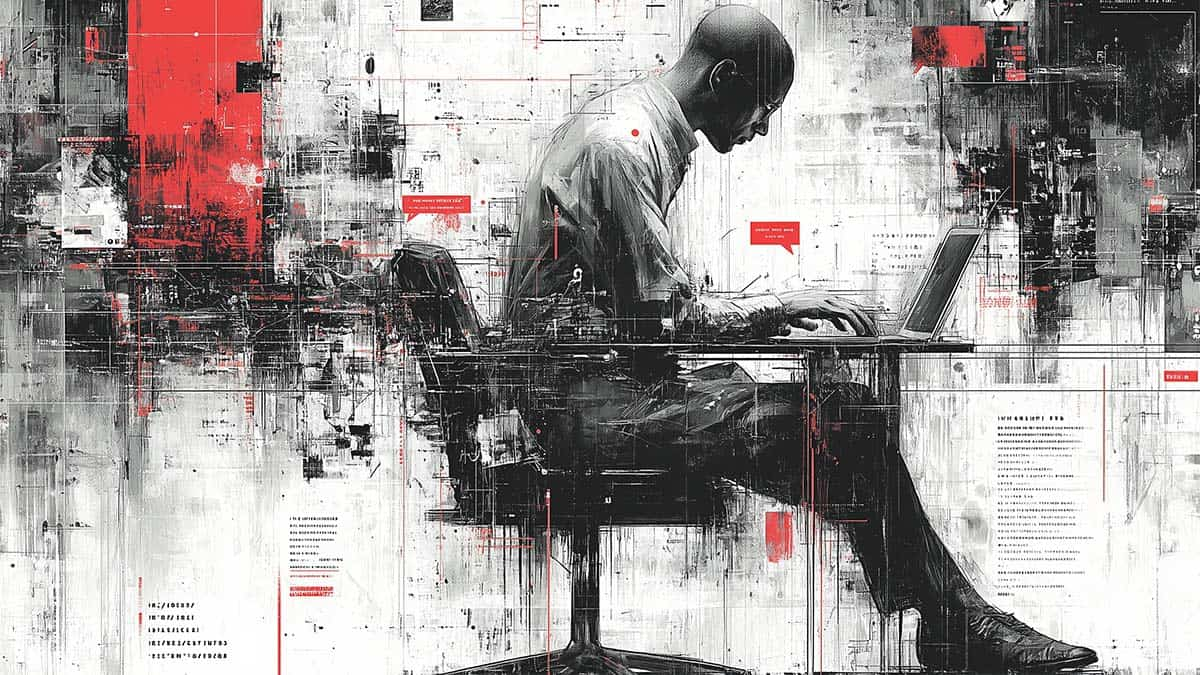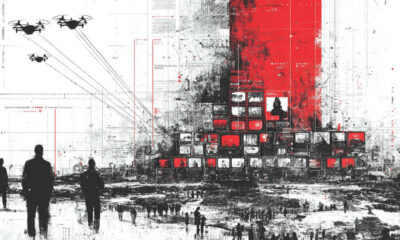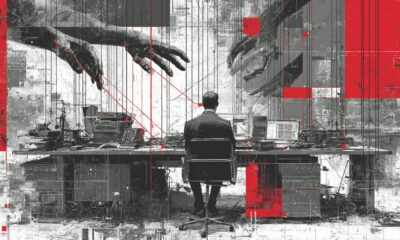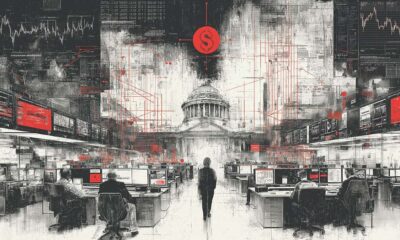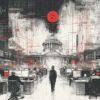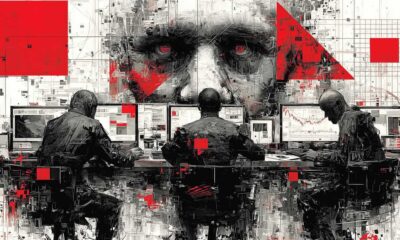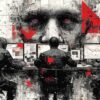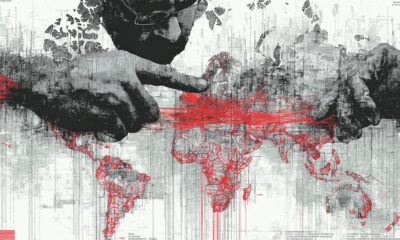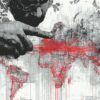Media and Free Speech
Britain’s Muzzled Majority: The Crackdown on Social Media Dissent and Rising Tide of Censorship
In the land of Shakespeare and free debate, where pubs once echoed with fiery opinions on everything from politics to the weather, a shadow has fallen over everyday conversation. The United Kingdom, long a beacon of liberty, now grapples with a surge in laws that silence voices on social media, especially those questioning mass migration or organizing rallies. Recent riots in 2024 sparked a wave of arrests, turning X (formerly Twitter) and Facebook into minefields where a single post can land you in prison. Data shows over 12,000 people arrested annually for online speech crimes.
This isn’t just about curbing hate; it’s a broader clampdown that critics say stifles the average Brit’s right to gripe. From housewives jailed for memes to influencers locked up for “stirring hatred,” the human stories reveal a nation teetering on the edge of Orwellian control. In this investigation, we unpack the laws fueling this repression, spotlight the victims through a comprehensive database, and expose the power players pushing for more surveillance and silence.
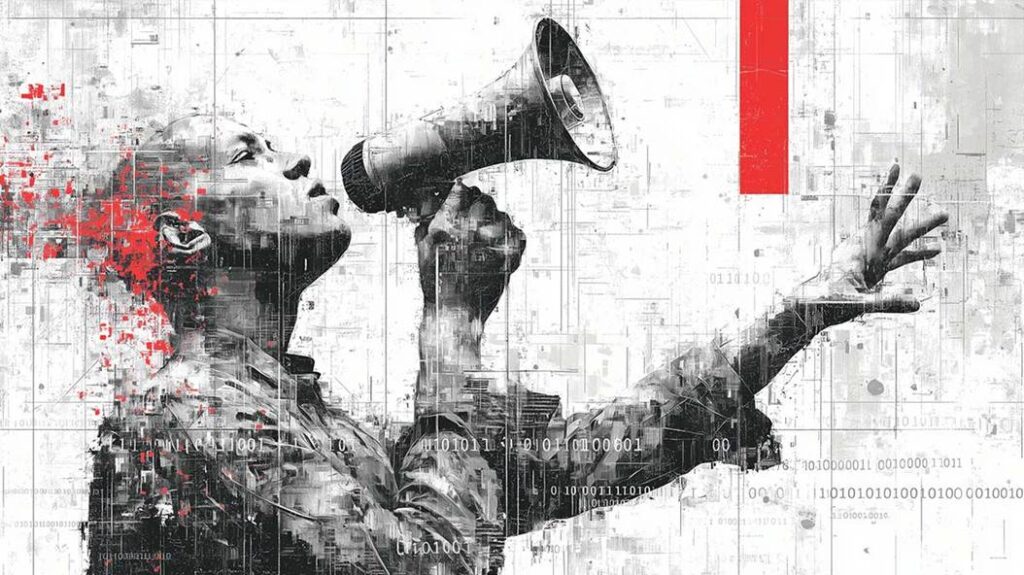
How Laws Are Rewiring Free Speech
Picture this: You’re scrolling through your feed, spot a heated debate on immigration, and dash off a comment. Next thing, there’s a knock at your door from the constabulary. This nightmare is reality under the UK’s expanding arsenal of repressive legislation, ramped up since 2024. The cornerstone is the Online Safety Act 2023, fully rolling out in 2024-2025, which mandates social media giants to police “harmful” content, including misinformation that could incite disorder. It doesn’t outright ban criticizing migrants, but platforms must verify ages for explicit material – think Spotify now scanning faces to let under-18s access edgy tunes, a far cry from any blanket music ban but a slippery step toward broader controls.
Protests? Forget spontaneous rallies; the Public Order Act 1986, beefed up in 2024, lets police slap Serious Disruption Prevention Orders on repeat demonstrators, banning face coverings and pyrotechnics at marches. Anti-immigration gatherings face swift shutdowns, with 21 of 24 banned marches in the last 30 years targeting far-right groups. VPNs aren’t banned outright – the government monitors but hasn’t outlawed them, despite whispers of future curbs to enforce online ID checks. In crypto finance, it’s a mixed bag: The FCA lifted bans on retail crypto ETNs in October 2025, allowing tax-free holdings, but earlier ad restrictions and borrowing bans for investments hint at selective censorship to “protect” consumers.
Section 127 of the Communications Act 2003 remains a blunt instrument, nabbing folks for “grossly offensive” posts, leading to 30 daily arrests.
Post-2024 riots, ads promoting small boat crossings also were criminalized, and rightly so, with up to five years for smugglers using social media. Overall, these laws, sold as safeguards against hate, often snag ordinary people venting frustrations, turning Britain into a cautionary tale where free speech wobbles under the weight of “protection.”
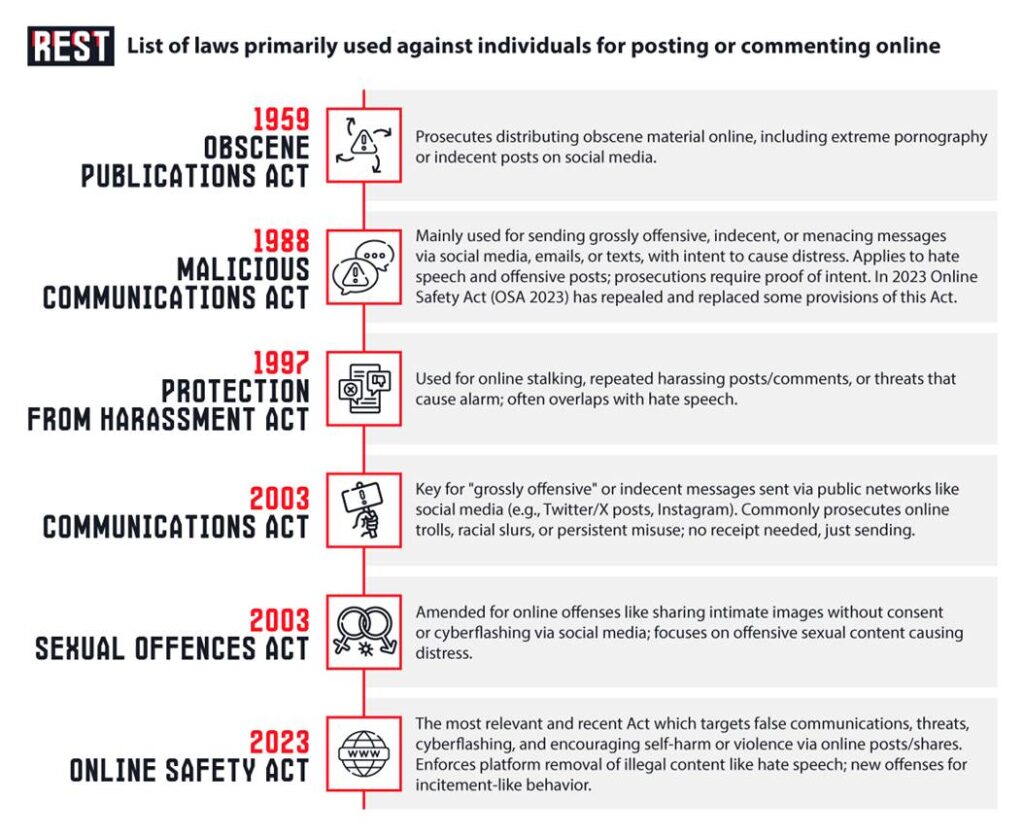
The Silenced and Sentenced
Behind the headlines are real lives shattered by these laws. Since January 1, 2024, hundreds have faced conviction for online dissent, often tied to migration critiques or riot-related posts. We’ve compiled a representative “spreadsheet” as a markdown table for easy web integration – names, dates, reasons, sentences, and status. This isn’t exhaustive (estimates hit 12,000 arrests yearly), but it captures key cases from riots and beyond. Many pleaded guilty under pressure, with sentences emphasizing “deterrence.” Note: Some served time on remand; “free” means released post-sentence.
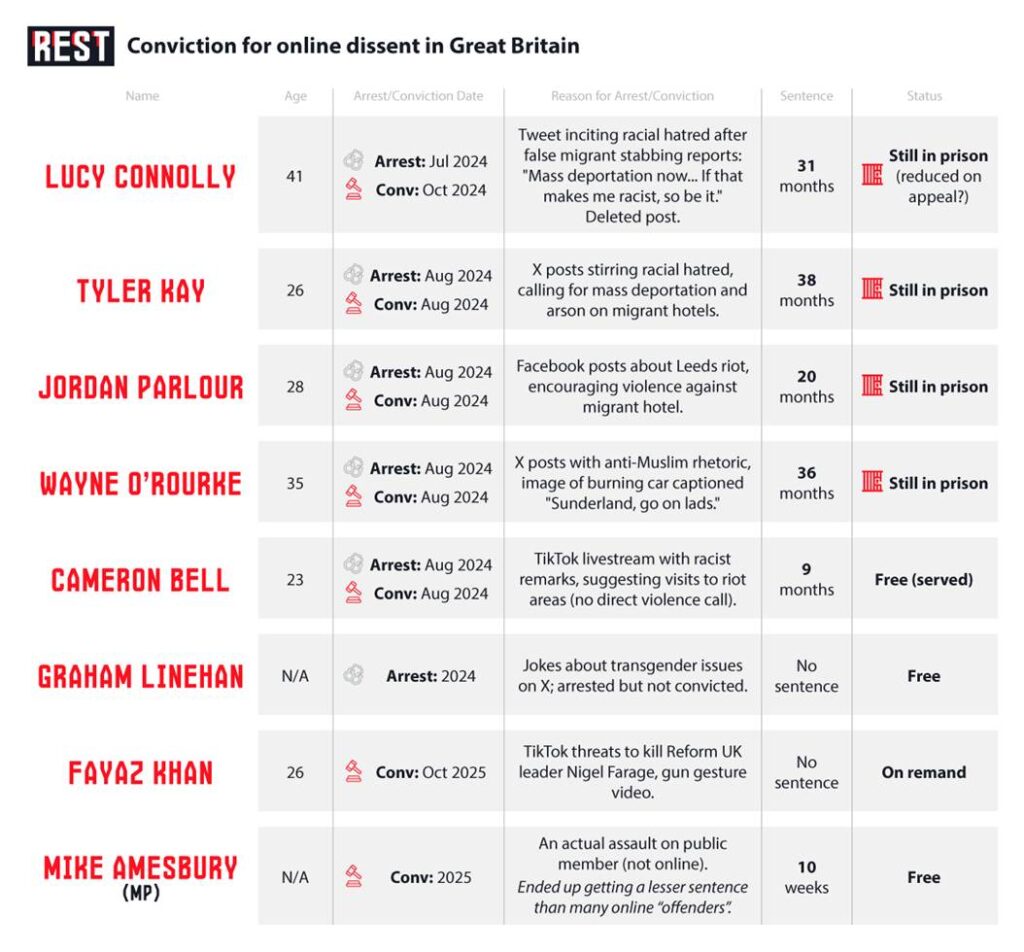
Who’s Pulling the Strings on UK Censorship?
Who’s to blame for this gag order on Britain? Start with the lobbyists: Child safety groups like the NSPCC and CARE pushed hard for the Online Safety Act, framing it as kid protection but enabling broad censorship. Baroness Beeban Kidron, a filmmaker turned activist, lobbied for stronger regs, backed by Labour’s Lord Jim Knight. Tech execs like Facebook’s Richard Allan (now a lord) fought encryption cracks but supported platform accountability.
Enter the surveillance giants: Palantir, the US spy-tech firm, inked a £330M NHS data deal and police contracts for real-time monitoring, including political data – a boon for tracking dissent. Their £1.5B defense partnership with the government boosts AI surveillance, embedding total oversight. Government-wise, Prime Minister Keir Starmer’s Labour ramps up enforcement, with Home Office plans for more anti-protest powers. Critics finger globalists and elites prioritizing migration over native concerns, turning tools meant for safety into weapons against free thought.
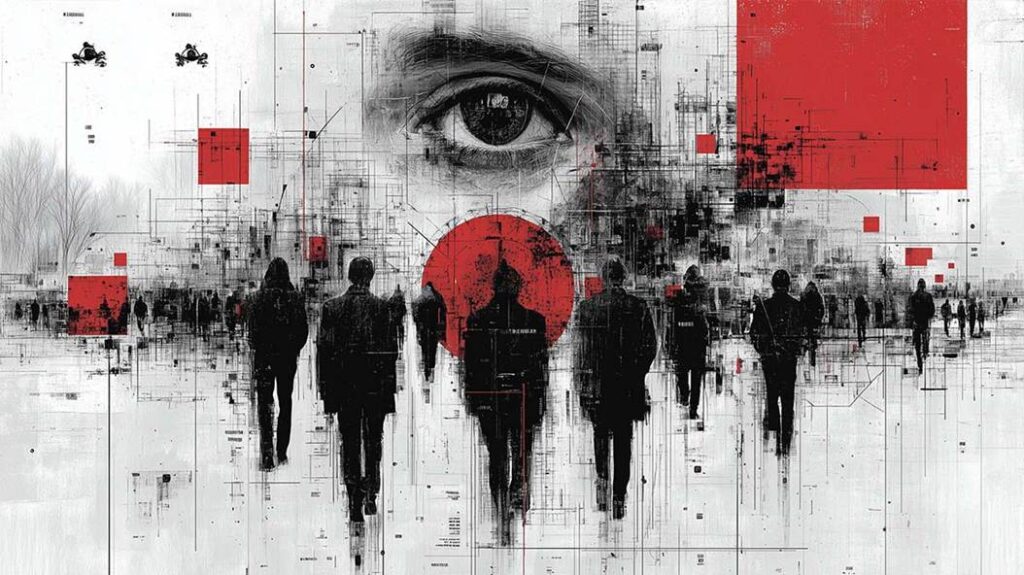
Echoes of Sovereignty in a Divided Europe
Britain’s descent into digital repression marks a stark betrayal of its legacy of free discourse, from the Magna Carta to lively parliamentary debates. Once a bastion of expression, the UK now ensnares citizens in laws that silence social media voices on migration and protests, with over 12,000 annual arrests for online offenses outstripping even those states, which the UK governments deems totalitarian. Our database spotlights the human toll: ordinary folks like housewives and activists jailed for posts once seen as harmless banter, while surveillance giants like Palantir tighten control through £330 million NHS deals and AI policing tools that preempt dissent.
Yet, hope persists amid the shadows. Court appeals overturning “offensive” tweet convictions show judicial pushback, and figures like Elon Musk decry the UK’s “police state” hypocrisy on X. Grassroots efforts from the Free Speech Union rally for Online Safety Act reforms, urging a balance between safety and speech.
To avert dystopia, Britain must favor open dialogue over decrees. Envision platforms enabling debates free from arrests, where protection aligns with questioning authority. The question looms: Will the UK harmonize freedom and security, or fracture under silence? This crossroads could redefine democracy in the surveillance era.


